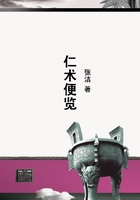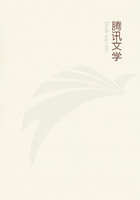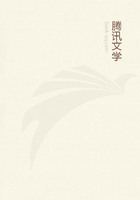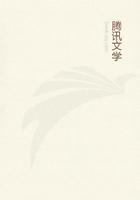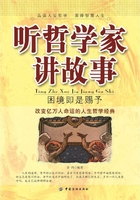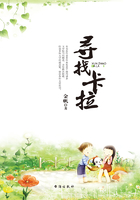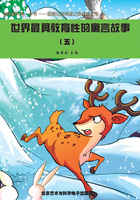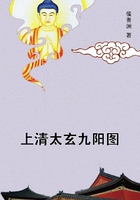1. The Whitsuntide Mummers.
IT remains to ask what light the custom of killing the divine king or priest sheds upon the special subject to our enquiry. In an earlier part of this work we saw reason to suppose that the King of the Wood at Nemi was regarded as an incarnation of a tree-spirit or of the spirit of vegetation, and that as such he would be endowed, in the belief of his worshippers, with a magical power of making the trees to bear fruit, the crops to grow, and so on. His life must therefore have been held very precious by his worshippers, and was probably hedged in by a system of elaborate precautions or taboos like those by which, in so many places, the life of the man-god has been guarded against the malignant influence of demons and sorcerers. But we have seen that the very value attached to the life of the man-god necessitates his violent death as the only means of preserving it from the inevitable decay of age. The same reasoning would apply to the King of the Wood; he, too, had to be killed in order that the divine spirit, incarnate in him, might be transferred in its integrity to his successor. The rule that he held office till a stronger should slay him might be supposed to secure both the preservation of his divine life in full vigour and its transference to a suitable successor as soon as that vigour began to be impaired. For so long as he could maintain his position by the strong hand, it might be inferred that his natural force was not abated; whereas his defeat and death at the hands of another proved that his strength was beginning to fail and that it was time his divine life should be lodged in a less dilapidated tabernacle. This explanation of the rule that the King of the Wood had to be slain by his successor at least renders that rule perfectly intelligible. It is strongly supported by the theory and practice of the Shilluk, who put their divine king to death at the first signs of failing health, lest his decrepitude should entail a corresponding failure of vital energy on the corn, the cattle, and men. Moreover, it is countenanced by the analogy of the Chitomé, upon whose life the existence of the world was supposed to hang, and who was therefore slain by his successor as soon as he showed signs of breaking up. Again, the terms on which in later times the King of Calicut held office are identical with those attached to the office of King of the Wood, except that whereas the former might be assailed by a candidate at any time, the King of Calicut might only be attacked once every twelve years. But as the leave granted to the King of Calicut to reign so long as he could defend himself against all comers was a mitigation of the old rule which set a fixed term to his life, so we may conjecture that the similar permission granted to the King of the Wood was a mitigation of an older custom of putting him to death at the end of a definite period. In both cases the new rule gave to the god-man at least a chance for his life, which under the old rule was denied him; and people probably reconciled themselves to the change by reflecting that so long as the god-man could maintain himself by the sword against all assaults, there was no reason to apprehend that the fatal decay had set in.
The conjecture that the King of the Wood was formerly put to death at the expiry of a fixed term, without being allowed a chance for his life, will be confirmed if evidence can be adduced of a custom of periodically killing his counterparts, the human representatives of the tree-spirit, in Northern Europe. Now in point of fact such a custom has left unmistakable traces of itself in the rural festivals of the peasantry. To take examples.
At Niederp?ring, in Lower Bavaria, the Whitsuntide representative of the tree-spirit the Pfingstl as he was called was clad from top to toe in leaves and flowers. On his head he wore a high pointed cap, the ends of which rested on his shoulders, only two holes being left in it for his eyes. The cap was covered with water-flowers and surmounted with a nosegay of peonies. The sleeves of his coat were also made of water-plants, and the rest of his body was enveloped in alder and hazel leaves. On each side of him marched a boy holding up one of the Pfingstl s arms. These two boys carried drawn swords, and so did most of the others who formed the procession. They stopped at every house where they hoped to receive a present; and the people, in hiding, soused the leaf-clad boy with water. All rejoiced when he was well drenched. Finally he waded into the brook up to his middle; whereupon one of the boys, standing on the bridge, pretended to cut off his head. At Wurmlingen, in Swabia, a score of young fellows dress themselves on Whit-Monday in white shirts and white trousers, with red scarves round their waists and swords hanging from the scarves. They ride on horseback into the wood, led by two trumpeters blowing their trumpets. In the wood they cut down leafy oak branches, in which they envelop from head to foot him who was the last of their number to ride out of the village. His legs, however, are encased separately, so that he may be able to mount his horse again. Further, they give him a long artificial neck, with an artificial head and a false face on the top of it. Then a May-tree is cut, generally an aspen or beech about ten feet high; and being decked with coloured handkerchiefs and ribbons it is entrusted to a special May-bearer. The cavalcade then returns with music and song to the village.

